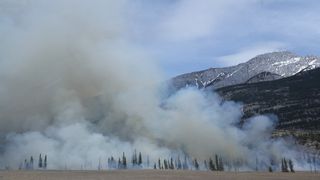Teaching climate change isn’t easy.
On the one hand, the scientific realities are grim and can terrify students. On the other, the issue has become so politicized recently that students often come to class with opinions on the topic that have nothing to do with science.
Dr. Eric J. Pyle, president of the National Science Teaching Association (NSTA), is well aware of these challenges and is dedicated to providing teachers with strategies to overcome. Pyle, a professor of geoscience education at James Madison University in Virginia, discusses these approaches for teaching climate change with Tech & Learning.
Q: How can teachers strike the right balance between informing rather than terrifying students when teaching climate change?
A: I teach a lot of pre-service earth science teachers and elementary teachers, for that matter. And this is a frequent topic of discussion. It would be so easy to fall into doom and gloom, and just really scare people. But that's not what we do in a science classroom. One of the things that we can do as science teachers is give students something to do. If I just give you a lot of things that look frightening and whatnot, and don't give you any way of dealing with it, then I've not really advanced the cause of education.
Q: What are some ways to do that?
A: You want to engage students with data, help them to see how to organize those data for analysis presentation, and then really discuss interpretations of those data. The science classroom is a place where we can come and think and talk rationally about these subjects. We can unpack them, we can take them apart in an analytic fashion. So even if there are projections that look scary, there are ways to deal with that.
Q: Would you incorporate things such as the increase in wildfires?
A: You can talk about the long-term causes of things like that. You can say, ‘Alright, here is an event. And this is a frightening event. And this is personally relevant to a lot of people. But let's take this from a different perspective. Let's see, really, how do we think about this rationally? How do we prepare for it?’
One of the interesting lines of thought here is not just whether climate change is happening or not, it becomes very hard to argue that it is not happening. What becomes the topic of discussion, though, is how do we deal with it? How are we resilient about it? So the notion of climate resilience comes into play. So it's ‘Let's be mindful, let's be rational,’ and also say, ‘Well, okay, there have always been forest fires, why are they worse now? And do they have more societal impact now because of where people are living as well?’
Q: How do you handle students who don’t believe in climate science?
A: I directed the position statement that we wrote about teaching climate science a couple of years ago. But it was getting very long, we had so much material that we were able to write a supplemental document.
The starting point is what is science and what is not science. Within the scientific community, there is not a controversy of whether or not climate change is happening and humans have something to do with it. That's not a controversy, the controversies are social, they are political, they are economic, and in some cases, religious. But the fact of the matter is, we have to recognize that those beliefs do exist. You're always going to have perhaps one student who goes: 'Well, my mama says... ' 'My daddy says...' 'Someone I respect says....’ So educators have to be very sensitive to the fact that these beliefs exist. But discussing those deep-seated beliefs is not an indictment on who you are as a person.
The thing that I always say in terms of pushback is, ‘Just because I'm saying something at odds with you doesn't mean I think you’re a bad person. You're not. That's not what I'm saying at all. We have different ideas. And let's take these apart, let's unpack them.’
Q: On the other end of the spectrum, what about students who get really upset as they learn about climate change?
A: If somebody looks very upset about this, then, okay, let's say, ‘What is based on data, the current data that we have? What is an extrapolation of those data? Okay, what's the difference between [data and] a model that we have created, and we have some really good models.’ Examine the nature of probability, how probable are these things? These are all rational tools.
Q: So you dig into the science and get a better understanding of it?
A: You start with, ‘Why are you upset? Okay, let's take this apart.’ It's not trying to downplay any projections that we might have. But it is about how do we put this into a more complex picture? And as I said at the very beginning, what can you personally do about it?
I feel like the more we can give students responsibility for tasks, the better off we are overall, because now they feel like they can have an ownership of something, that they can have some impact on outcome. And I think that's really, really important for students that might be particularly upset about something.
For resources on climate change for educators, parents, and students visit nsta.org.


